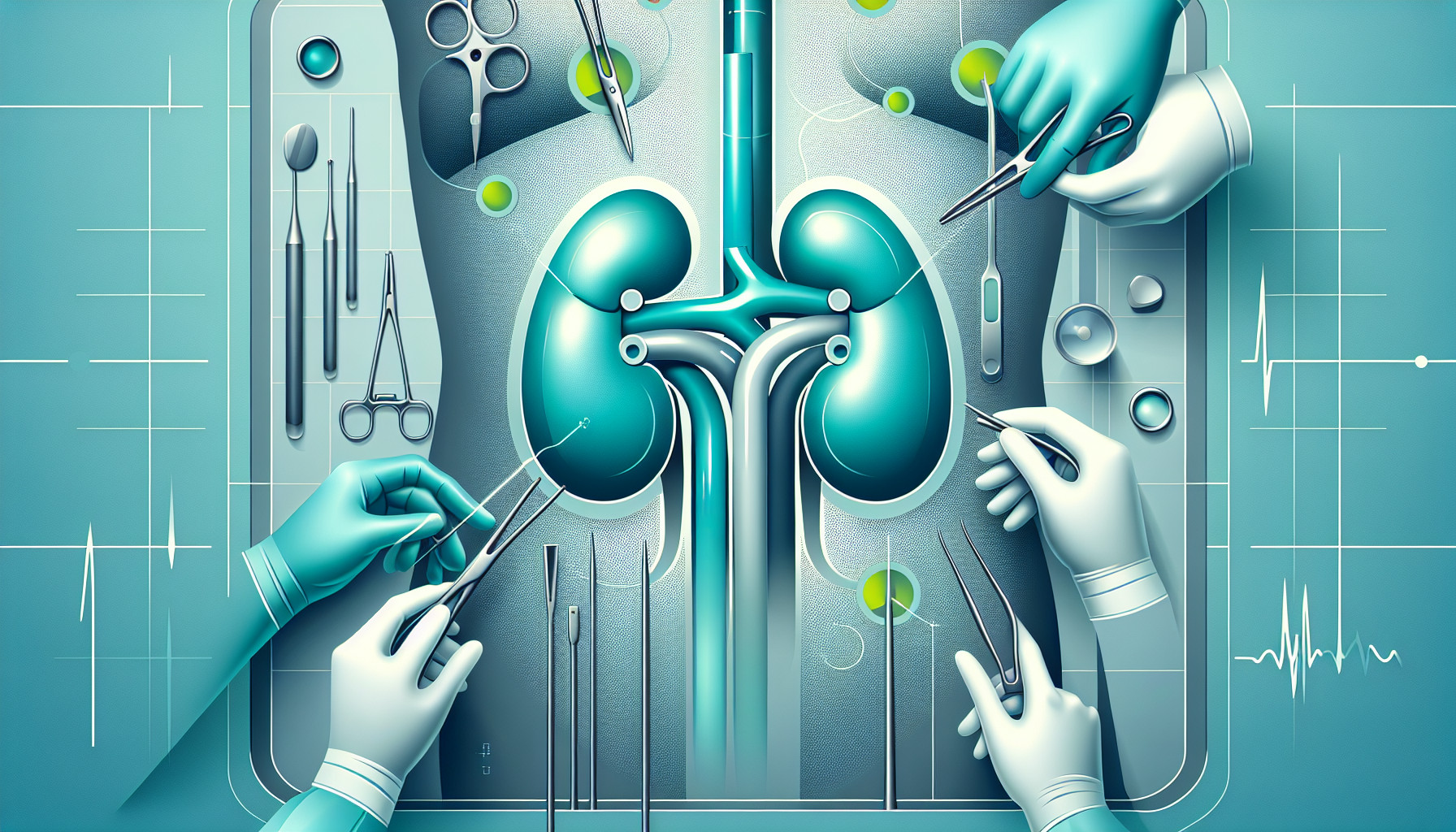Our Summary
This research paper discusses the possible improvements in kidney transplant outcomes through the use of new biomarkers, such as pretransplant plasma endotrophin. Currently, doctors look at factors like age, obesity, blood pressure, existing health conditions, and estimated survival scores to predict the success of a kidney transplant. They also consider the patient’s immune system response, specifically looking at certain proteins and antibodies that can affect how well the body accepts the new kidney.
However, this paper suggests that by also looking at the levels of certain markers in the patient’s blood before the transplant, doctors could better predict problems after the transplant. In studies across Europe, it was found that patients with higher levels of a specific substance in their blood (plasma endotrophin) were more likely to have problems with their new kidney. Another finding was that patients with a certain type of genetic variation were more likely to lose their new kidney.
The paper concludes that combining these new methods with existing ones could lead to better decisions about individual patient care in kidney transplants.
FAQs
- What are the current factors doctors look at to predict the success of a kidney transplant?
- How could pretransplant plasma endotrophin levels affect kidney transplant outcomes?
- How could genetic variations potentially impact the success of a kidney transplant?
Doctor’s Tip
A helpful tip a doctor might tell a patient about kidney transplant is to stay on top of regular check-ups and blood tests to monitor the health of your new kidney. By closely monitoring your levels of certain markers in your blood, such as plasma endotrophin, doctors can better predict and prevent any potential issues that may arise after the transplant. It’s important to communicate openly with your healthcare team about any symptoms or changes you may be experiencing, as early detection and intervention can greatly improve the success of your transplant.
Suitable For
Patients who are typically recommended for kidney transplant are those with end-stage renal disease, meaning their kidneys are no longer functioning well enough to sustain life. These patients often require dialysis to filter waste and excess fluids from their blood. Other factors that may make a patient a good candidate for a kidney transplant include:
- Age: Younger patients tend to have better outcomes after a kidney transplant compared to older patients.
- Overall health: Patients with few other health problems are more likely to have successful transplant outcomes.
- Body mass index (BMI): Obese patients may be at higher risk for complications during and after a kidney transplant.
- Blood pressure control: High blood pressure can damage the kidneys and may affect transplant outcomes.
- Compatibility: Finding a compatible donor (either living or deceased) is crucial for a successful kidney transplant.
- Psychosocial factors: Patients must be able to adhere to a strict medication regimen and attend regular follow-up appointments for the best chance of success.
By considering these factors along with new biomarkers like pretransplant plasma endotrophin, doctors can make more informed decisions about which patients are most likely to benefit from a kidney transplant. This personalized approach can lead to better outcomes for patients and potentially reduce the risk of complications post-transplant.
Timeline
Before kidney transplant:
- Patient undergoes extensive medical evaluations to determine eligibility for transplant
- Patient is placed on a waiting list for a suitable donor kidney
- Patient may undergo dialysis treatments to manage kidney failure while waiting for transplant
- Pre-transplant tests are conducted to assess compatibility between donor and recipient
After kidney transplant:
- Patient undergoes surgery to receive the new kidney
- Patient is closely monitored in the hospital for signs of rejection or complications
- Patient is prescribed immunosuppressant medications to prevent rejection of the new kidney
- Patient continues to be monitored regularly post-transplant to ensure the kidney is functioning properly
- Patient may need to make lifestyle changes to maintain kidney health, such as following a specific diet or avoiding certain medications
Overall, the timeline for a kidney transplant involves a series of evaluations, procedures, and ongoing care to ensure the success of the transplant and the patient’s long-term health.
What to Ask Your Doctor
- What factors do you consider when determining if I am a suitable candidate for a kidney transplant?
- Can you explain the potential risks and benefits of a kidney transplant for me?
- How will you monitor my progress after the transplant surgery?
- Are there any lifestyle changes I should make before or after the transplant to improve my outcome?
- Are there any new biomarkers or genetic tests that you recommend to assess my risk of complications post-transplant?
- How long is the typical recovery time after a kidney transplant?
- What should I do if I experience any complications or side effects after the transplant?
- How often will I need to follow up with you or a transplant specialist after the surgery?
- Are there any specific medications I will need to take to prevent rejection of the new kidney?
- Can you provide me with information on support groups or resources for kidney transplant patients?
Reference
Authors: Tepel M, Nagarajah S, Saleh Q, Thaunat O, Bakker SJL, van den Born J, Karsdal MA, Genovese F, Rasmussen DGK. Journal: Front Immunol. 2022 Jul 25;13:945288. doi: 10.3389/fimmu.2022.945288. eCollection 2022. PMID: 35958571
